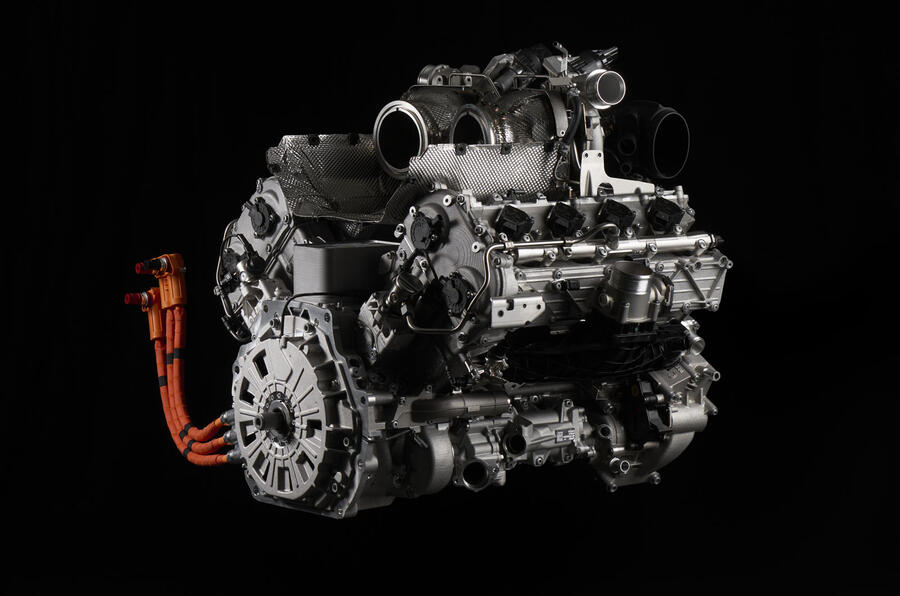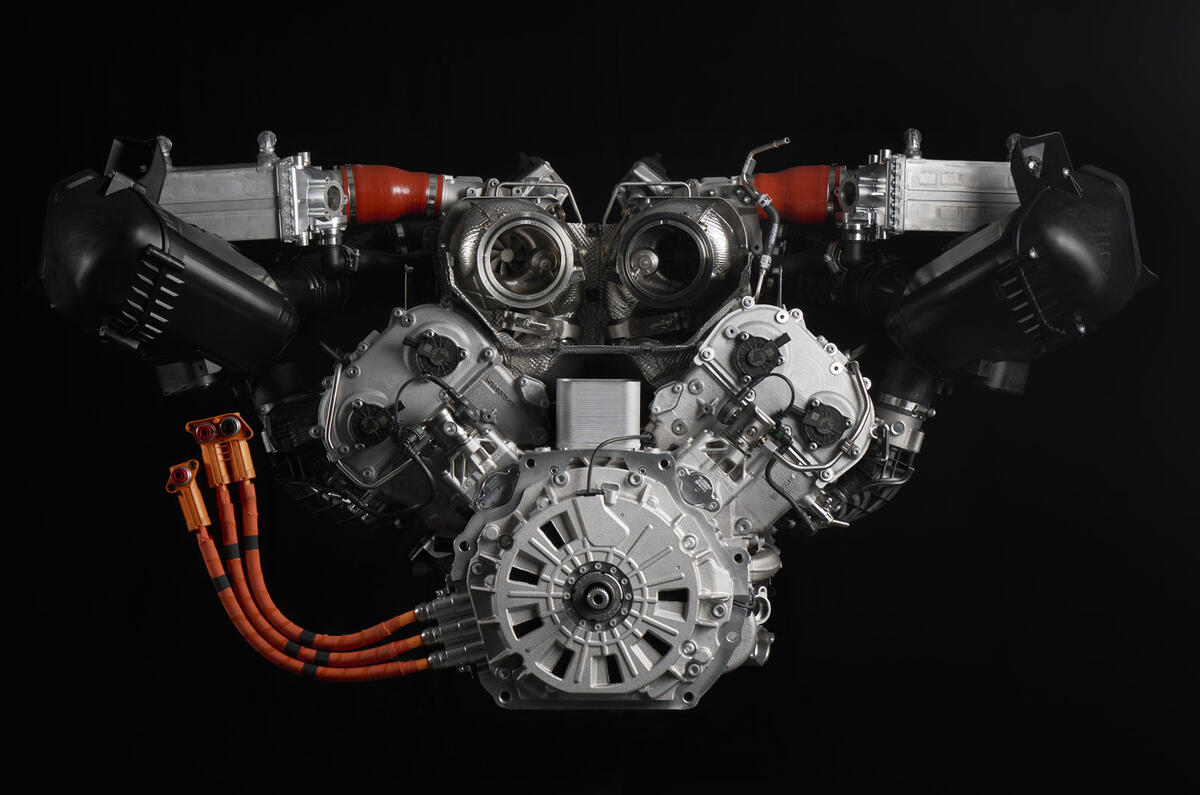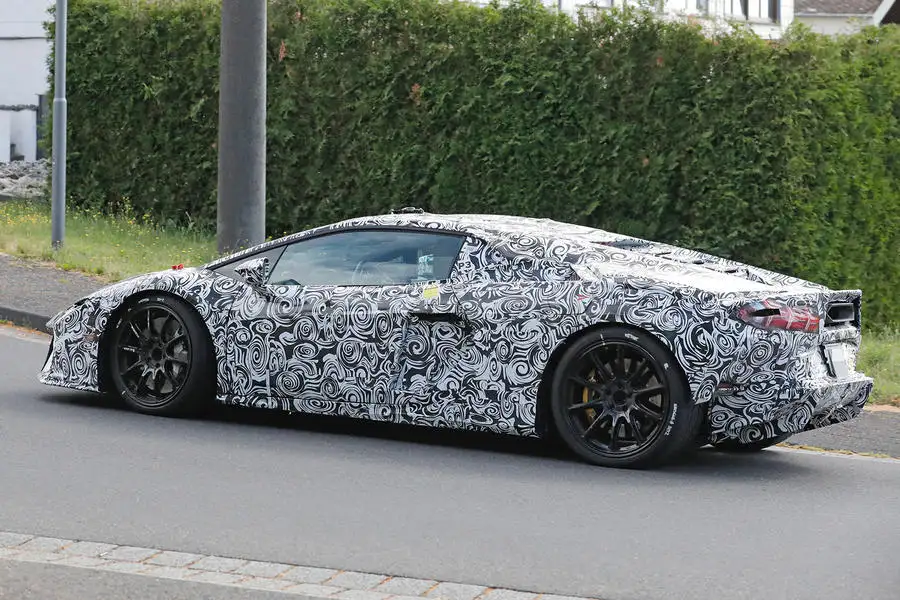The replacement for the Lamborghini Hurácan will feature one of the most powerful and highest-revving V8 engines yet installed in a production car.
The new Ferrari 296 GTB rival, codenamed 634, will be revealed in August, as previously reported by Autocar, and is set to be launched by the end of the year.
It will have a plug-in hybrid powertrain, at the centre of which is a twin-turbocharged 4.0-litre V8 developing a huge 789bhp and 538lb ft in its own right - far more than the reserves pumped out by the Hurácan's atmo V10, even in extreme STO guise.
Perhaps most notable, though, is that this new engine redlines at a screaming 10,000rpm - "a figure normally reserved for racing engines", Lamborghini said.
Indeed, that figure will make this the highest-revving V8 fitted to any current production car. In fact, only a handful of road-going hypercars – including the Mercedes-AMG One, GMA T50 and Aston Martin Valkyrie – have engines that spin faster.

The Lamborghini Urus also uses a 4.0-litre twin-turbo V8, but while that is an Audi-developed lump shared with various Porsche, Bentley and Audi RS models, the 634's powerplant is said to be all-new and developed entirely in Sant'Agata.
Lamborghini said a "crucial element of the design process was to define the sound" of the new engine, which it promises will have a "unique and distinctive character and deliver the driver an unparalleled driving experience".
It will work in tandem with a slimline, lightweight, axial-flux electric motor integrated ahead of the eight-speed dual-clutch automatic gearbox, which sends up to 148bhp and 221lb ft to the rear axle - plus another pair on the front axle, like the Revuelto.
Lamborghini hasn't yet confirmed if these motors, too, are supplied by British company Yasa.
Nor has the manufacturer given a total combined power output, but it's likely to be somewhere comfortably north of 900bhp.
The 634 is expected to also have its small-capacity traction battery housed in the transmission tunnel in the name of compact packaging and optimal weight distribution.
The move to a PHEV system has significant implications for the dynamic behaviour of the Hurácan's replacement. “The package itself is much better than a normal ICE car”, Lamborghini sales and marketing boss Federico Foschini told Autocar.













Join the debate
Add your comment
It has a 10,000rpm redline but will the car you buy have a rev limiter set at 10,000rpm or lower? Throwing in a 3/4yr warranty with 36k miles on a 10,000rpm motor is certainly ballsy!
Greta isn't going to like this one bit.
If you're into italian sportscars, it's worth watching the Electric Ferrari Testarossa series by Electric Classic Cars on You Tube. Some of the data from their trip to Switzerland is mind-boggling, not least the fuel cost and CO2 emission differences. This is despite the electrified versions being much faster than the original petrol models.